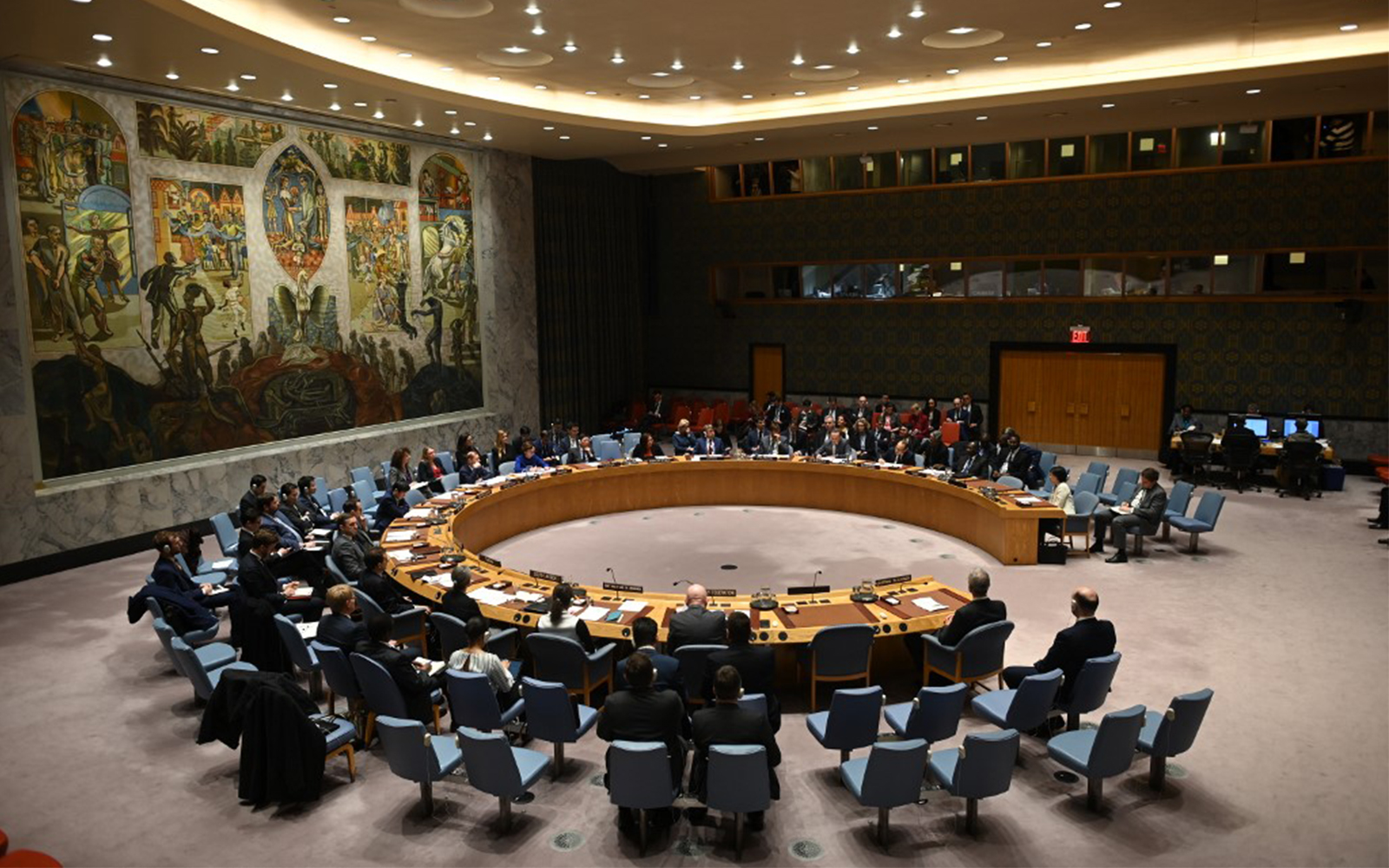The United Nations Security Council is unlikely to take action over the assassination of leading Iranian nuclear scientist Mohsen Fakhrizadeh, according to a Tuesday report.
Fakhrizadeh, considered the architect of Iran’s nuclear weapons program, was killed on Friday as his car was targeted in a bomb and gun attack on a road outside the capital Tehran, heightening tensions once more between Tehran and its foes.
Shortly after the assassination, Iran sent a letter to UN Secretary-General Antonio Guterres and the UN Security Council alleging “serious indications of Israeli responsibility.”
The letter demanded the Security Council condemn the assassination and act against any parties responsible for the killing.
The Reuters news agency reported Tuesday that the Security Council, a 15-member body, is unlikely to act on the request, citing diplomats who said there had been no discussion of a statement on the assassination.
Jerry Matjila, South Africa’s UN ambassador and the current council president, also said that no members have requested a discussion on the killing.
The council is supposed to enforce international peace and security, and can authorize military action and levy sanctions. The US has veto power against such moves and usually backs Israeli interests in the council.

German Foreign Minister Heiko Maas, center, speaks at a UN Security Council meeting at United Nations headquarters in New York, February 26, 2020. (Johannes Eisele/AFP)
The body could discuss Fakhrizadeh’s killing behind closed doors if a member requests a discussion, or it could issue a statement if members agree on one by consensus.
The New York Times said an American official and two other intelligence officials said Israel was behind the attack on Fakhrizadeh. Israel has not officially commented on the assassination.
Tehran officially denies plans to develop atomic weapons, maintaining its nuclear program is for civilian purposes. A trove of Iranian documents stolen from Tehran by Israel’s Mossad spy agency, which where revealed by Prime Minister Benjamin Netanyahu in 2018, showed plans by Iran to attach a nuclear warhead to a ballistic missile.
Iran has suffered several devastating attacks this year, including the killing of top general Qassem Soleimani in a US drone strike in January, and a mysterious explosion and fire that crippled an advanced centrifuge assembly plant at the Natanz uranium enrichment facility, which is widely believed to have been an act of sabotage.
 RSS Feed
RSS Feed















 December 2nd, 2020
December 2nd, 2020  Awake Goy
Awake Goy  Posted in
Posted in  Tags:
Tags: 













